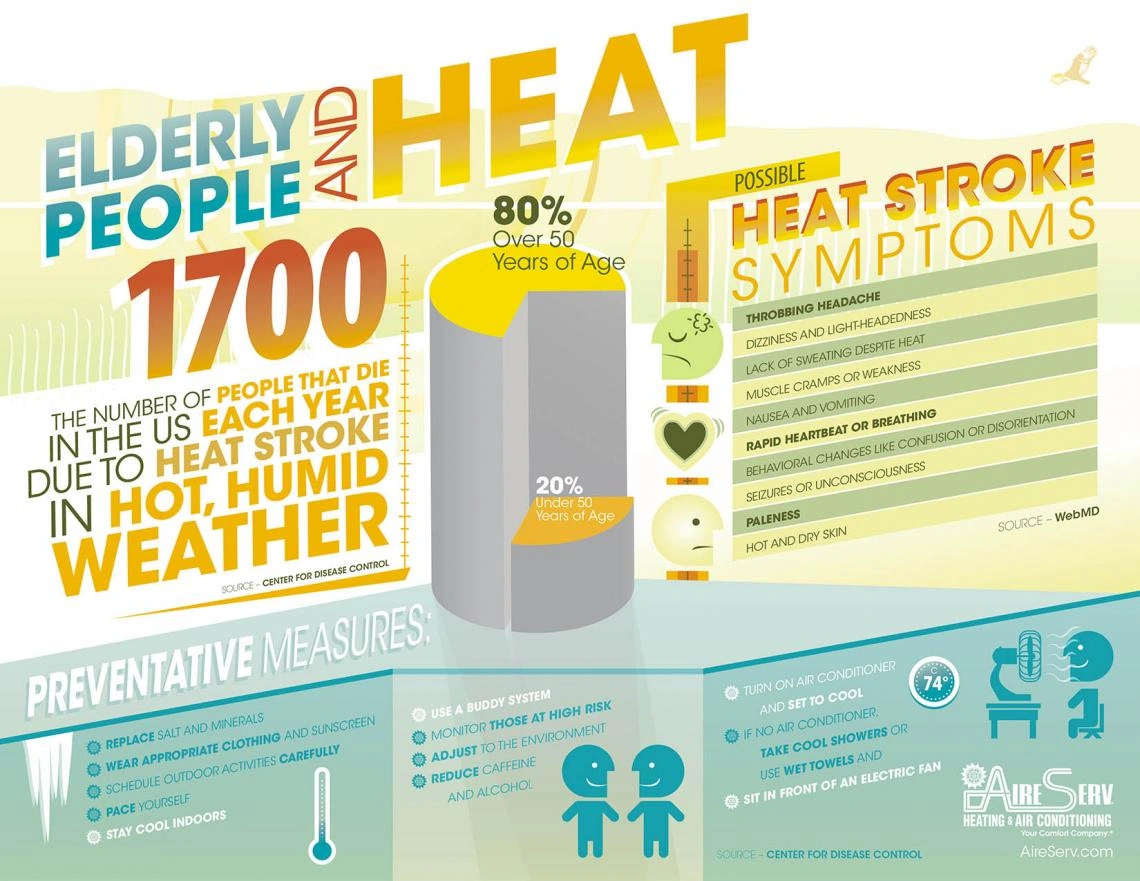
In honor of National Senior Citizen’s Day, Aire Serv® would like to remind you to make sure that your elderly neighbors are comfortable during the hottest time of the year.
Dangers of Heat Exposure
Research proves that the elderly are prone to heat-related illness more than any other segment of the population. The Center for Disease Control reports that 1,700 people die in the U.S. each year due to heat stroke in hot, humid weather, and about 80 percent of these deaths occur in people over 50 years old. Heat stroke can result in death or cause brain and other internal organ damage, and it occurs when the body is unable to regulate its temperature. Within 10 to 15 minutes, the body temperature may rise to 106 degrees Fahrenheit.
Symptoms of Heat Stroke
According to Web MD, fainting may be the first sign of heat stroke, but other possible symptoms include: a throbbing headache, dizziness and light-headedness, lack of sweating despite heat, muscle cramps or weakness, nausea and vomiting, rapid heartbeat or breathing, behavioral changes like confusion or disorientation, seizures or unconsciousness. If your neighbor shows any of the above symptoms, immediately call 911 and then perform first aid by attempting to decrease the person’s body temperature to 101 degrees Fahrenheit. Place ice packs on the person’s armpits, groin, neck and back – areas with the most blood vessels – and immerse the person in a shower or tub of cool water.
Preventive Measures
Air conditioning is the number one protective factor against heat-related illness and death, according to the Center for Disease Control. Although electric fan access is important, it is not applicable in temperatures in the mid-90s and above. During conditions of extreme heat without air conditioning at home, spend time in public places with air conditioning, such as the local libraries, shopping malls, or a public health sponsored heat-relief shelter. Cool showers and wet towels are also good preventative measures, in addition to replacing salt and minerals while avoiding caffeine and alcohol. Always make sure you, your family and neighbors wear the proper protective clothing as well as sunscreen and schedule your outdoor activities wisely depending upon the heat and time of day. Visit cdc.gov or webmd.com for more information on heat-related illnesses.

